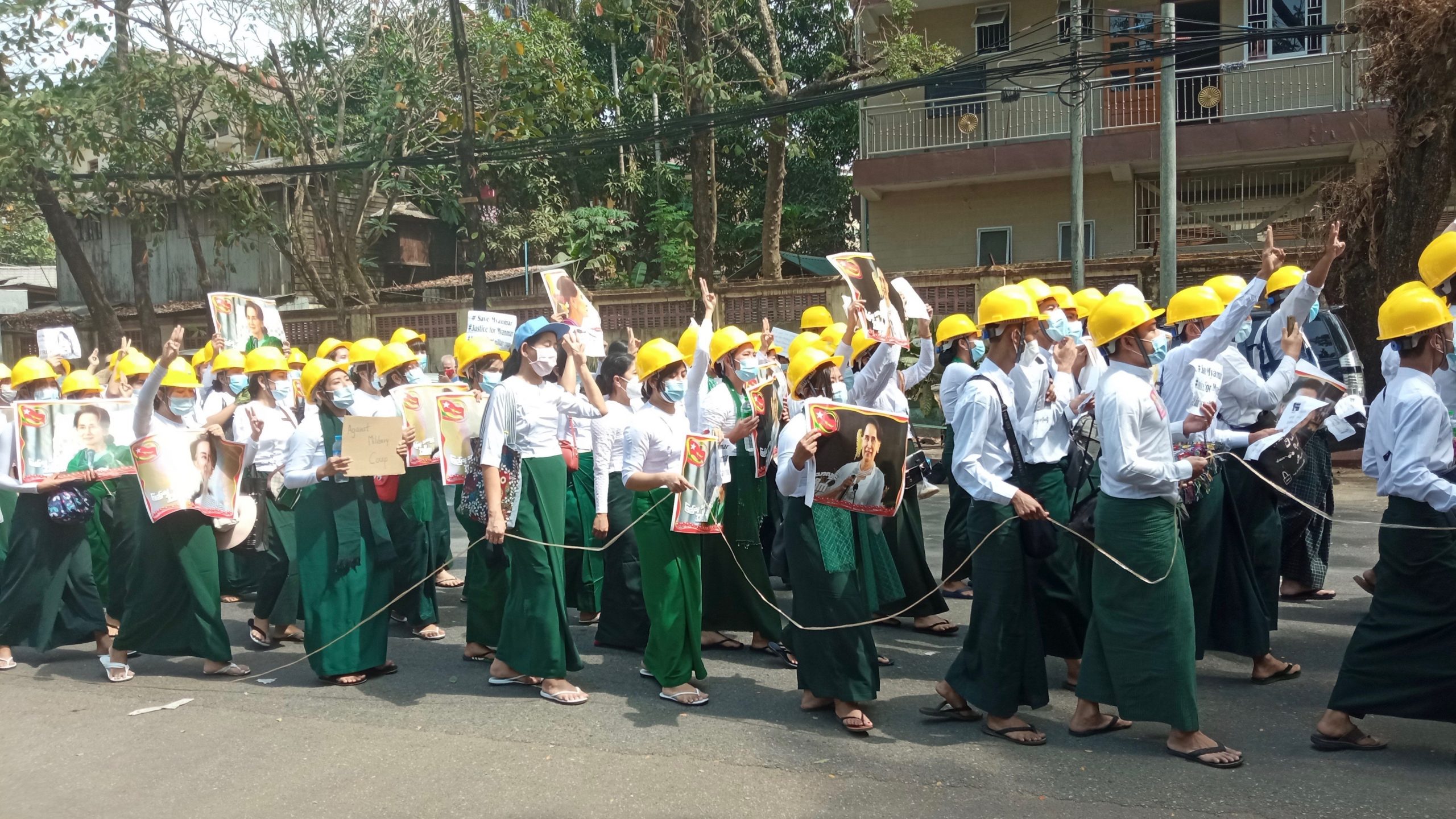In Myanmar, protests against last week’s military coup that toppled the Aung San Suu Kyi-led civilian government and the imposition of a one-year emergency continue to intensify. Tens of thousands of people hit the streets in Southeast Asian Myanmar’s largest city, Yangon, for the fifth consecutive day on Wednesday, February 10. Labor unions, activists, teachers, government officials, doctors and others sections of society are part of the protests.
As the protests grow, activists groups in the country have called for a general strike and asked government employees to not report to work in an act of defiance against the military dictatorship. Even the police forces from Kayar State and Loikaw Towship joined the general strike against the coup.
In its statement, the country’s largest labor group, the Confederation of Trade Unions of Myanmar (CTUM) have now stressed that “any official” who goes on “to force protesting employees to resign or to leave their housing provisions would be facing charges.”
Hundreds of teachers and doctors marched in their uniforms in civil disobedience in Yangon’s Hledan Centre while responding to the calls for general strike on Monday. A large number of government forestry employees from Tanintharyi also joined the protest march carrying placards reading, “Say No to Dictatorship”, “Reject Military Coup,” and “We Want Democracy.”
Now in #Naypyidaw. Police use water canons against protesters. A guy goes down bleeding at the end of the clip. Such use of force and proximity of the water cannon to civilians is cause for serious concern. #WhatsHappeningInMyanmar #Myanmarcoup #CivilDesobedienceMovement pic.twitter.com/i1bz0MwiPt
— Rin Fujimatsu (@rinfujimatsu) February 8, 2021
Garment and health workers, also seeking abolishment of the military regime, are also participating in the civil disobedience movement.
Regarding the mass protests, United Nations Special Rapporteur Tom Andrews tweeted, “protesters in Myanmar continue to inspire the world as actions spread throughout the country. A general strike has been called for tomorrow. Myanmar is rising up to free all who have been detained and reject military dictatorship once and for all. We are with you.”
On Sunday, police stopped a protest rally using water cannons in capital Naypyidaw. In Yangon, saffron-robed monks, most of whom are believed to have close proximity with the military, marched in protest alongside students carrying the flag of Suu Kyi’s National League for Democracy (NLD) party.
Suu Kyi’s party NLD was accused of letting the Myanmar military led by Min Aund Hlaing, to persecute the minority Muslim Rohingyas, many of whom (around 730,000) have now fled the country after experiencing the mass killings, looting, rapes and prosecution in 2017. The NLD ‘won’ the parliamentary elections held in November with a 80% majority and was supposed to attend the first day of a new session of parliament on February 1 when the military coup took place.
In 2019, the International Criminal Court (ICC) called for the “investigations into the crimes committed by the Myanmar government” led by Aung San Suu Kyi. At the ICC, the head of state from the NLD party denied all the charges of the crimes perpetrated against the Rohingyas by defending Myanmar’s military which eventually toppled her government earlier this week.
The military banned social networking sites like Facebook and WhatsApp on February 5, and subsequently blocked the internet services across the country. Internet connections reportedly have been restored in some parts. A significant number of political activists and over a hundred lawmakers including president U Win Myint and state counselor Suu Kyi continue to remain in detention under house arrest in Nay Pyi Taw.
The commander-in-chief of armed forces Min Aung Hlaing has declared in a television announcement that there will be “strict action against the offenders who disturb or destroy the state stability and rule of law.” However, despite the threats and intimidation, protests have only intensified.





